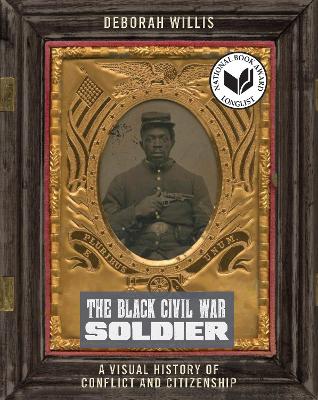Reviewed by annieb123 on
The Black Civil War Soldier is a well researched and thoroughly annotated study of the black men who served (on both sides) in the American Civil War. Due out 21st Jan 2021 from the NYU Press, it's 240 pages and will be available in hardcover format.
The author, Dr. Deborah Willis, is a historian and film/ephemera researcher as well as a photographer in her own right. This book, while academically rigorous and prodigiously annotated throughout is refreshingly accessible to non-academics. The language is understandable and readable and most often, she allows the subjects to speak eloquently for themselves, through their photos and the ephemera (letters, diaries, family oral history, and archival evidence) they left behind.
I found myself often moved emotionally during reading this book and affected deeply by the plight of the young men and their families depicted here. There are epigraphs aplenty from luminaries (Frederick Douglass, Lincoln, Dr. Alexander T. Augusta, and many others who will be familiar to many readers), but it's the unknowns, lesser knowns, the family men, the wives and mothers whose histories are preserved here who affected me the most. I grew up in West Virginia and am intimately familiar with many of the cities and towns described.
Seeing the resilience and bravery and honor and mettle of the men here against the backdrop of the nauseating prejudiced mishandling by everyone *including their comrades at arms and commanding officers* was often difficult to read and process.
The chapters are laid out chronologically: 1860-61, 1861-62, 1863, 1864, and 1865-66. The text is liberally annotated and illustrated with line drawings, facsimiles of period documents, and an impressive number of photos. Although the treatment is admittedly academic, there's enough annotation and chapter notation and bibliography to satisfy the staunchest pedant - at the same time, there's a clear and compelling biographical narrative. I'm amazed that there's enough period record to reconstruct the stories of these families after more than 150 years.
Five stars. I would recommend this book to readers of American history, war history, American culture, classroom instruction in the Civil War period or allied subjects, ephemera, etc.
Disclosure: I received an ARC at no cost from the author/publisher for review purposes.
Reading updates
- Started reading
- 18 October, 2020: Finished reading
- 18 October, 2020: Reviewed
